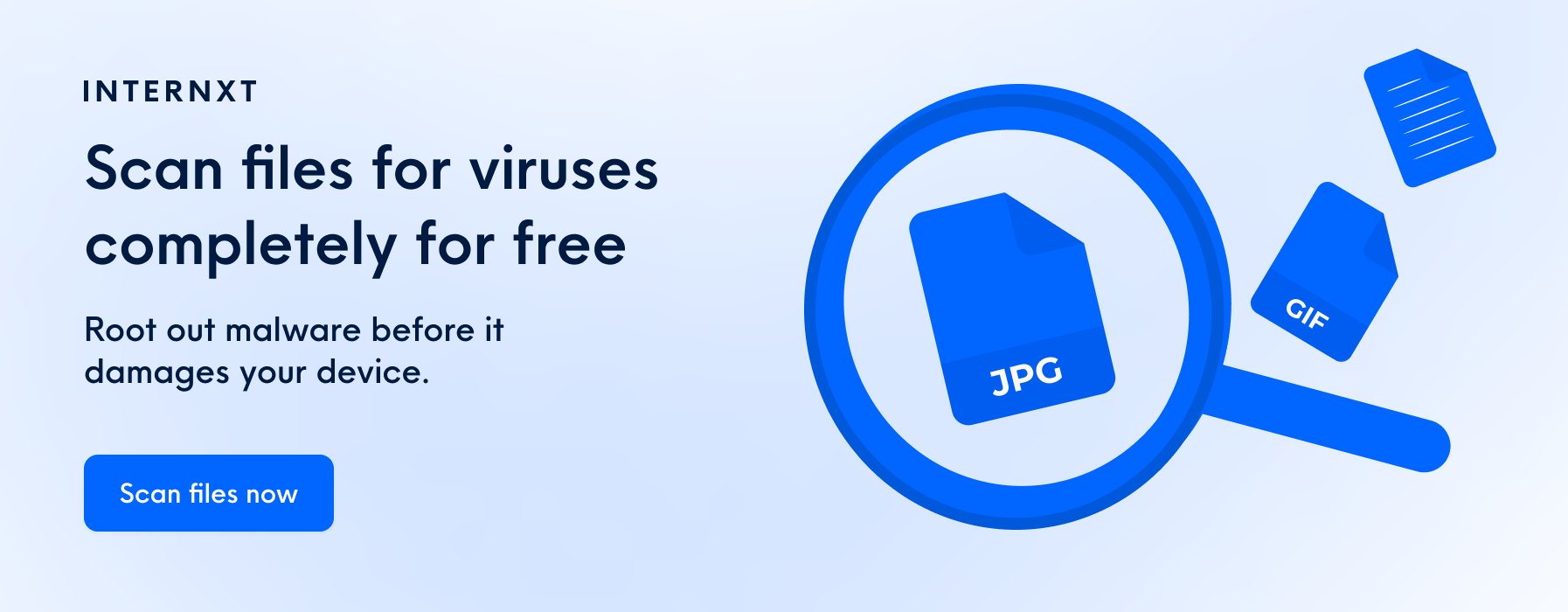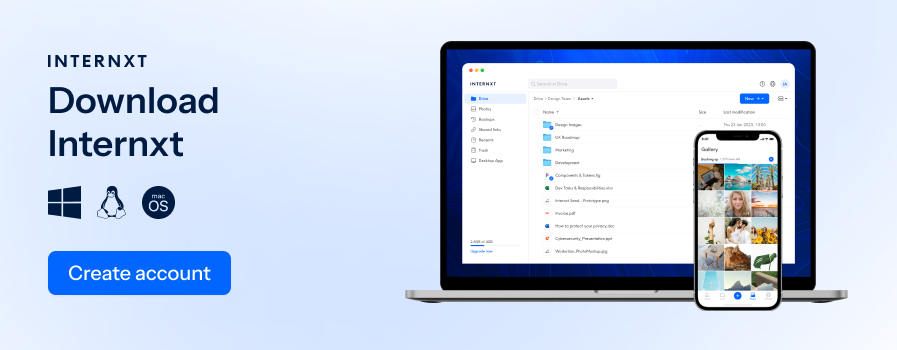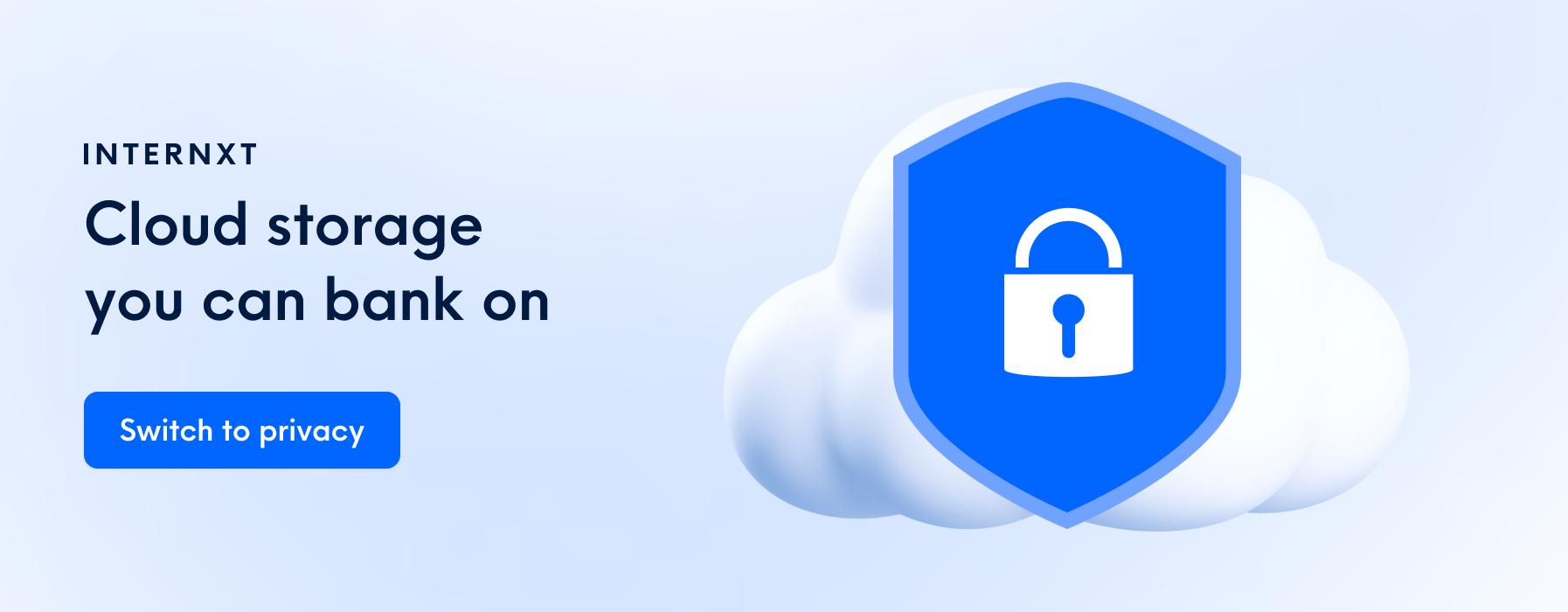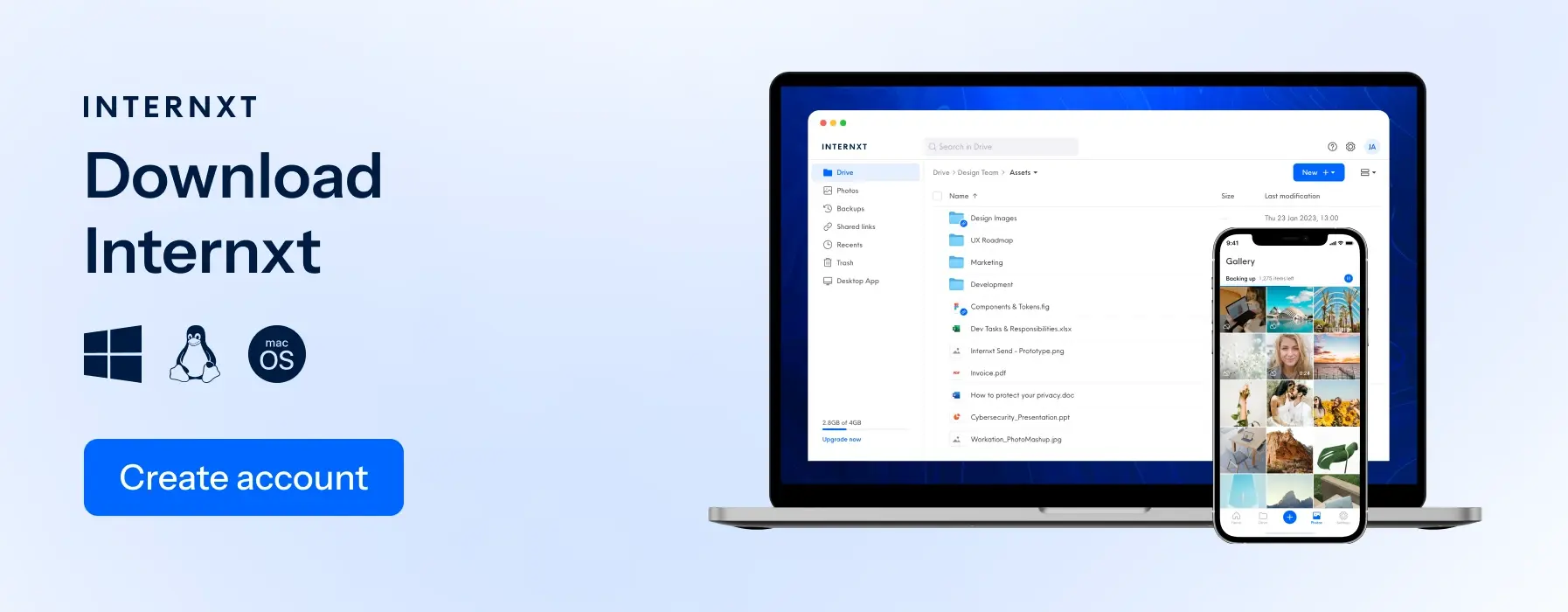10 Free Cloud Storage Services for Backups in 2025

Coud storage is not just a convenience but a necessity for individuals and businesses. With this in mind, this article explores the increasing relevance of free cloud storage solutions, a brief history of their evolution, and how free cloud storage can help you manage your data securely.
With the rise of internet connectivity and the proliferation of smart devices , free cloud storage has become more relevant than ever. Previously, we stored our documents, photos, music, etc., on physical devices such as SSD drives, CDs, or DVDs.
These free cloud storage solutions will offer a convenient way to store any file economically and become essential for online collaboration and improving workflows for businesses or small teams.
Free cloud storage benefits everyone, from students to large corporations. So, let’s look at what these 9 best free cloud storage providers can offer via their secure platforms for storing and sharing information without investing in costly physical infrastructures.
How free cloud storage became an in-demand service
The history of cloud storage is a narrative of constant innovation and adaptation. From its early days in the first decade of the 21st century, when cloud services were primitive and limited, we have witnessed significant evolution.
Initially, these services offered modest storage space and basic synchronization options. However, with technological advancements and increasing demand, cloud storage providers began to offer more space, better security features, and more sophisticated collaboration tools, all at no extra cost.
The development of technologies like data encryption and multi-factor authentication has greatly improved the security of these services, a crucial aspect given the sensitivity of the stored data.
Furthermore, integrating cloud storage into everyday applications and operating systems has facilitated a smooth transition towards an almost total reliance on cloud-based solutions for data storage.
What features can I get with free cloud storage?
Free cloud storage services generally offer limited storage space, which may be enough for individual users or small businesses not working with large volumes of data.
Moreover, free options typically include basic functionalities like uploading and downloading files and some syncing and sharing capabilities. However, they may need more advanced features like online editing or real-time collaboration.
Support for users of free services can be more limited than paid plans. It may consist of help through forums or online resources rather than personalized assistance.
Some free cloud storage solutions may include advertising as a form of monetization, which can affect the user experience and the application interface. Still, it can also be a form of companies that monetize your data for their benefit.
However, if we need to store less data for free, then free cloud storage may be the best option for you with these list of cloud storage backup solutions.
However, if we need to store less data for free, then free cloud storage may be the best option for you with these list of cloud storage backup solutions.
How free cloud storage protects your files with backups
We are aware that the total loss of our files would be devastating. Therefore, regular backups of files and documents are essential to keep sensitive information safe. Backup options and features must be considered when signing up for online accounts.
Hardware failures, human errors, malware attacks, and natural disasters are just some of the many causes that can lead to data loss. Backups act as a safety net, ensuring that in case of loss, data can be recovered.

What are the different types of backups, and how do they work?
A backup in cloud storage is a method for saving and protecting data by transferring it to an online storage service.
This process involves copying and storing digital files, such as documents, photos, videos, and other data types, on a remote server managed by a cloud storage service provider so companies can access backups and recover lost files.
There are different types of backups depending on the frequency of changes in the data, the amount of data to be backed up, the available storage resources, and the speed at which the restored data needs to be accessed.
Full backup
Copies all data in one place. Recommended for complete restoration of data restoration of data. It is not advisable for frequent backups as they require more time and space than other backup methods.
Incremental
Copies only the files that have changed or been added since the last backup, whether complete or incremental. This type of backup uses less storage space and is faster to perform than a full backup.
However, restoration can be slower and more complicated, as it requires the last full backup and all subsequent incremental backups. It can be used for regular backups where changes since the last copy are few.
Differential
Copies changes made since the last full backup, regardless of incremental backups performed. It is faster than a full backup and easier to restore than an incremental one, but it will require more space than an incremental backup.
Cloud backup
Stores data in a cloud storage service, which can be complete, incremental, or differential. You can access it from anywhere, and it often incorporates high levels of security.
The only disadvantage we might encounter is that it depends on your internet connection speed, meaning to get the best out of your cloud backup speeds, you will need a fast Wi-Fi router to keep up with file uploading, downloading, and backups.
Can backups be made with free cloud storage options?
Many free cloud storage services offer options to automate backups. This means that data can be regularly backed up without manual intervention, ensuring that the most recent versions of the files are always safe.
As storage needs change, cloud storage can sometimes be easily up or downgraded. Although free services have space limits, they often offer enough capacity for individual users or small businesses, with the option to upgrade to paid plans if more storage is needed.
Despite being free, many free cloud storage solutions employ important security measures, such as data encryption, to protect against unauthorized access and to adhere to privacy rules and regulations.
Fortunately, recovering data from the cloud is generally straightforward and quick. As an extra advantage, the best free cloud storage options allow you to log in from any device or operating system. This is especially valuable in emergencies, where quick backup access can be essential.
Free cloud storage, therefore, represents an accessible and effective solution for data protection in the online world. These services are invaluable for individual users and businesses and offer convenience, automation, scalability, security, and ease of recovery.
Free cloud storage available in 2024
Choosing which is the best free cloud storage for you will depend on your:
- Storage Needs: Evaluate the free storage offered to ensure it meets your current and potential future needs.
- Security and Privacy: Prioritize platforms with robust encryption and privacy measures to protect your data from unauthorized access.
- File Type and Size Limits: Check for restrictions on file types and maximum file sizes, ensuring compatibility with your typical data and projects.
- Sync and Collaboration Features: Assess synchronization capabilities and collaboration tools to ensure seamless access and sharing across devices and with collaborators.
With this in mind, our list of the best free cloud storage examples will help you decide which is right for your needs.
Internxt
Internxt Drive offers 1GB of free storage with excellent security, privacy, and the ability to sync and backup your files.
Internxt uses a network of distributed nodes to store encrypted fragments of files in different locations. This ensures data redundancy, improves security, and reduces the risk of a single point of failure by always having multiple versions of your files available for recovery.
Internxt has applications available for desktop and mobile devices, including Linux, allowing access to your files from anywhere. Two-factor authentication and encryption ensure secure access.
A free Internxt account includes secure collaboration through the sharing of files and folders, and you can manage who can access your documents at any time by choosing what emails you want to share with, password-protecting files, and stopping file access whenever necessary.
Internxt also offers tools for increased accessibility when sharing files. With its secure file converter you can convert incompatible files to more accessible formats, such as HEIC to JPG, and store or share them in your Internxt Drive account.
You can upgrade to an Internxt monthly subscription for €4.99 for 200GB. If you want more storage, you can get 2TB for €9.99, 5TB for €19.99, and 10TB for €29.99. Annual and lifetime plans are also available on its website.
Internxt is a suitable option for individuals and teams, offering remote access and reliable customer support. Its emphasis on providing a secure platform for your backups and files makes it the best free cloud storage to protect your data.
Internxt also offers immutable backups through its S3 storage plans, allowing businesses to scale their storage to fit their needs. There are no transfer or API fees, with a fixed rate of €7/TB/month.
Internxt also offers business plans for teams to store, collaborate, and share files securely. Standard business plans (1TB per user, min 3 users, max 10 users) start at €6.99 per user per month, Pro plans (2TB per user, min 3 users, max 100 users).
If you want to save more money for your business, you can save up to 10% on annual plans. Standard annual plans cost €79.99 per user, and Pro costs €99.99 per user.
Internxt business plans include these features:
- Secure file sharing between departments.
- Organize your teams, add users, add storage, and monitor account activity and logins.
- Upgrade and add more storage depending on company needs, giving you full control over managing costs.

Degoo
Degoo offers 20 GB of free storage and includes zero-knowledge encryption. Degoo currently focuses more on providing a platform to store your photos, but it also includessecure photo sharing with its app.
It’s worth noting that 90 days of inactivity with a free Degoo account will cause your account to be deleted, and your photos will be lost. Upgrading a free Degoo account gives benefits such as referral schemes for more storage and an ad-free experience. Storage plans go up to 5000GB at $9.99 per month.
Degoo is available for iOS, Android, and Web (for paid plans).
Nextcloud
With Nextcloud, you can share and collaborate on files within an organization and with external users. It also integrates tools such as calendars, contacts, and email, providing a complete free cloud solution opportunity for businesses and teams.
Like most cloud providers, it features end-to-end encryption and two-factor authentication, ensuring the protection of stored data. Nextcloud’s open-source platform allows customization and adaptation to different needs and scales, from small businesses to large organizations.
One downside of Nextcloud as a free cloud storage platform is that it is a self-hosted service, meaning that it can be a complex process to set up for those unfamiliar with this type of cloud storage.
Nevertheless, self-hosting may be a suitable option for those with experience. It is often the most private option because you control everything, reducing the need for external parties to handle your data. This may make it the best free cloud storage for those with experience with more advanced tech or who are willing to learn.
Dropbox
Dropbox is a well-known service offering a basic free plan of 2GB, which is one of the smallest free storage options available on this list. Dropbox has several valuable features for individuals and small businesses.
Despite offering encryption during rest and data transfer and protecting accounts with authentication protocols. However, Dropbox does not encrypt files end-to-end, meaning it is less secure than other free cloud storage providers.
Dropbox allows storing and synchronizing photos, videos, and all types of files and documents across various devices, including operating systems such as Microsoft Windows, Mac, iOS, Android, and Windows Phone.
Users can easily share files and folders, even with those who do not have a Dropbox account. There is the possibility of creating shared links that can be sent by email or through other applications.
Dropbox offers "selective synchronization" to choose which folders to sync with the desktop, and "smart synchronization" allows viewing all files on the device but selecting which ones are stored locally and which ones are in the cloud.
Dropbox has options for paid plans that offer more storage capacity, such as 2 TB in the Plus plan and 3 TB in the Professional plan.

Microsoft OneDrive
OneDrive has 5 GB of free storage and integrates with the Office365 suite. It is a good option for personal use, with automatic file backup and collaboration functions.
OneDrive allows the storage of various files such as images, audio, video, and documents. Users receive 5 GB of free storage, which can be expanded with Premium subscription plans. With a Microsoft 365 subscription, users receive 1 TB of online storage per device, up to five devices.
It is integrated with Office Online, allowing users to upload, create, edit, and share Microsoft Office documents directly in a web browser. Free and paid versions of OneDrive include versions of Microsoft Word, Excel, PowerPoint, and OneNote.
MEGA
Mega provides up to 20 GB of free storage with user-controlled end-to-end encryption. It is accessible on various devices and operating systems, including Windows, Mac OS X, Linux, Android, and iOS. Users can share files or folders by generating links with different levels of access permissions.
MEGA also offers subscription plans with expanded storage and transfer capabilities, varying prices based on user needs.
Despite its advantages, MEGA has some drawbacks, such as dependency on internet speed for uploads and downloads and the possibility of temporary unavailability or data transfer freezing.
Icedrive
Icedrive offers up to 10 GB of free storage with end-to-end encryption. Its user interface is intuitive, and it has various paid plans with increased storage capacity, including monthly and yearly options. It also has 5-year plans to upgrade from free cloud storage to a more long-term investment.
Icedrive emphasizes security, using Twofish encryption for paid accounts and zero-knowledge encryption. However, end-to-end encryption is not available with free plans, so you should take care when uploading sensitive documents to your free account, as they are not fully protected.
It supports easy access from different platforms and has a built-in media player, but lacks document collaboration and block-level syncing options.

Sync.com
Sync provides 5 GB of secure free storage with end-to-end encryption. The user-friendly platform supports automatic backups and functions as an integrated local disk.
Sync.com facilitates easy file sharing, permission revocation, and file recovery. While lacking a native Linux app, it is suitable for small to medium-sized businesses as an alternative to services like Dropbox.
pCloud
pCloud offers cloud storage with military-grade encryption, accessible from various devices and operating systems. Files sync automatically across devices, and there are backup features for data protection. The free plan includes 10 GB of storage, making it one of the more generous free cloud storage solutions, alongside Internxt, for a free account.
iCloud
iCloud provides 5 GB of free storage for photos, videos, apps, and other files. Although technically available for all devices, iCloud is built with the Apple user and ecosystem in mind, but it does allow syncing across iOS devices and access from anywhere.
Similar to Google and OneDrive, iCloud holds the decryption keys to data stored in the cloud. For many, this raises privacy concerns, as iCloud can theoretically decrypt and view your files or give access to your account to government agencies.
iCloud may be one of the best free cloud solutions for Apple users, but there are better privacy-focused platforms to store sensitive files. Even so, iCloud offers paid plans for additional storage, and it can back up iOS devices online, restoring them without a computer connection.

Benefits of free cloud storage
As we can see, the best free cloud storage solutions offer a generous amount of free storage and give you access to other features regardless of whether you are a free user. Choosing a free cloud storage provider should maintain your online privacy and security, so bear this in mind when you store files with any of these services.
For peace of mind, choose an open-source, zero-knowledge provider, such as Internxt, for free storage, end-to-end encryption, secure collaboration, and more. Your files will be fully protected, and you can regain control of your online privacy by subscribing to Internxt today.

